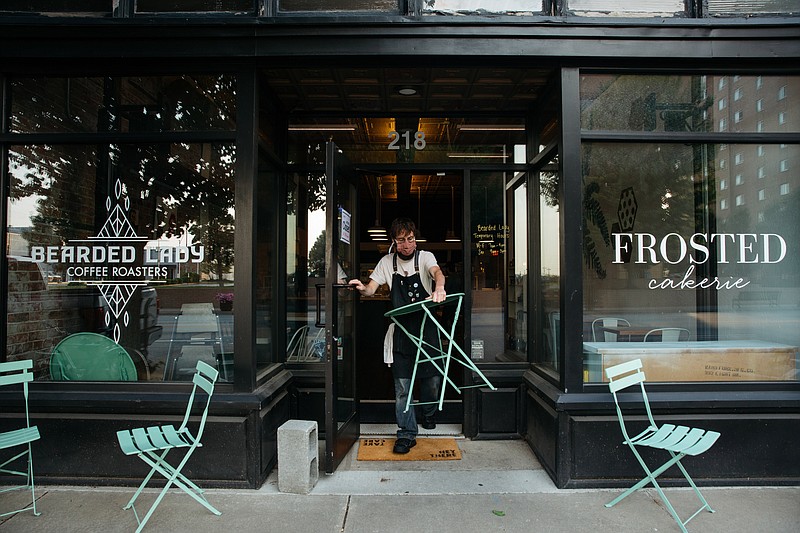It seemed this spring that the pandemic sweeping America had passed Joplin by.
The meticulously prepared coronavirus unit at the hospital was all but deserted. The health department dutifully reported each day it had nothing new to report. The novel coronavirus was terrorizing the coasts and larger inland hubs, killing people by the thousands. But in the modest southwest Missouri city where Bonnie and Clyde once hid out from the law, it was more rumor than reality.
"We're dead center in the middle of the nation," said Joplin Mayor Ryan Stanley. "It took so long to get to us."
Now that it has arrived after a statewide reopening, however, it's hitting the region with a vengeance. After starting June with no active cases in the city, Joplin entered July at the heart of one of the country's fastest growing coronavirus hot spots. And like many places that skipped the springtime surge only to be walloped this summer, it's fighting back with a much-diminished arsenal.
[CORONAVIRUS: Click here for our complete coverage » arkansasonline.com/coronavirus]
Meanwhile, the one measure that medical experts say could turn the coronavirus tide -- widespread use of masks -- has become mired in politics. Joplin's City Council spent nearly five hours recently debating whether to require them, only to reject the proposal by a single vote.
In a deeply conservative region where Donald Trump won nearly 80 percent of 2016's presidential ballots, any attempt to force people to mask up was likely to backfire, Stanley concluded. Most residents who had spoken at the meeting argued against the measure, citing infringement of their personal freedom.
"I'm surprised it's as divisive as it is," said the mayor, who personally wears masks and advocates that others do the same, but who cast the deciding vote against mandating them. "If we're having this crazy spike in the area, don't you think we'd want to err on the side of caution?"
Joplin's struggles to contain its outbreak reflect just how difficult it may be for places that are only now experiencing the virus for the first time to reclaim control. Collectively, they have the benefit of having watched other areas to see what works and what doesn't.
"There's a little bit of the boy who cried wolf," said Toby Teeter, president of the Joplin Chamber of Commerce. "This town shut down where there were 18 cases total. Now, there are 100 a day [in the region]. People are almost numb to it."
With many of the new national outbreaks concentrated in relatively rural and conservative areas, many people are also less trusting of medical advice.
"Eighty percent of people here are watching one channel and it's downplaying the epidemic," Teeter said. "So there's a lot of confusion."
Teeter has spearheaded efforts to increase mask use among business owners and their customers. Early in the epidemic, when masks were in short supply, he helped bring 32,000 to the city and distributed them to essential businesses, such as nursing homes, where they were badly needed.
Lately, he's been working on a public education campaign to raise awareness about just how effective masks can be in containing the spread of the coronavirus.
"You go to Walmart and you might see a couple hundred people shopping and only a dozen wearing masks," he said. "This is not Washington and it's not New York. It's an uphill battle to get people to mask up."
Schools, meanwhile, are scheduled to reopen next month.
Anthony Montleone thought that requiring masks might be a relatively low-cost way to bend the curve. Late last month, the City Council member in his second term proposed an ordinance modeled on those passed in other cities, including nearby Fayetteville. He was cautiously optimistic that it would pass.
Instead, it went down to defeat after a contentious debate. Those who spoke out against it said they were exasperated by the way the virus had affected their lives and would not tolerate the government introducing more disruptions.
"Our civil rights are being trampled," 69-year-old Dixie Hogan told the council. "We just want to return to normal."
"It's shocking when something so simple to save lives becomes so polarized," Montleone said. "As a nation, I just don't know where we went wrong."



